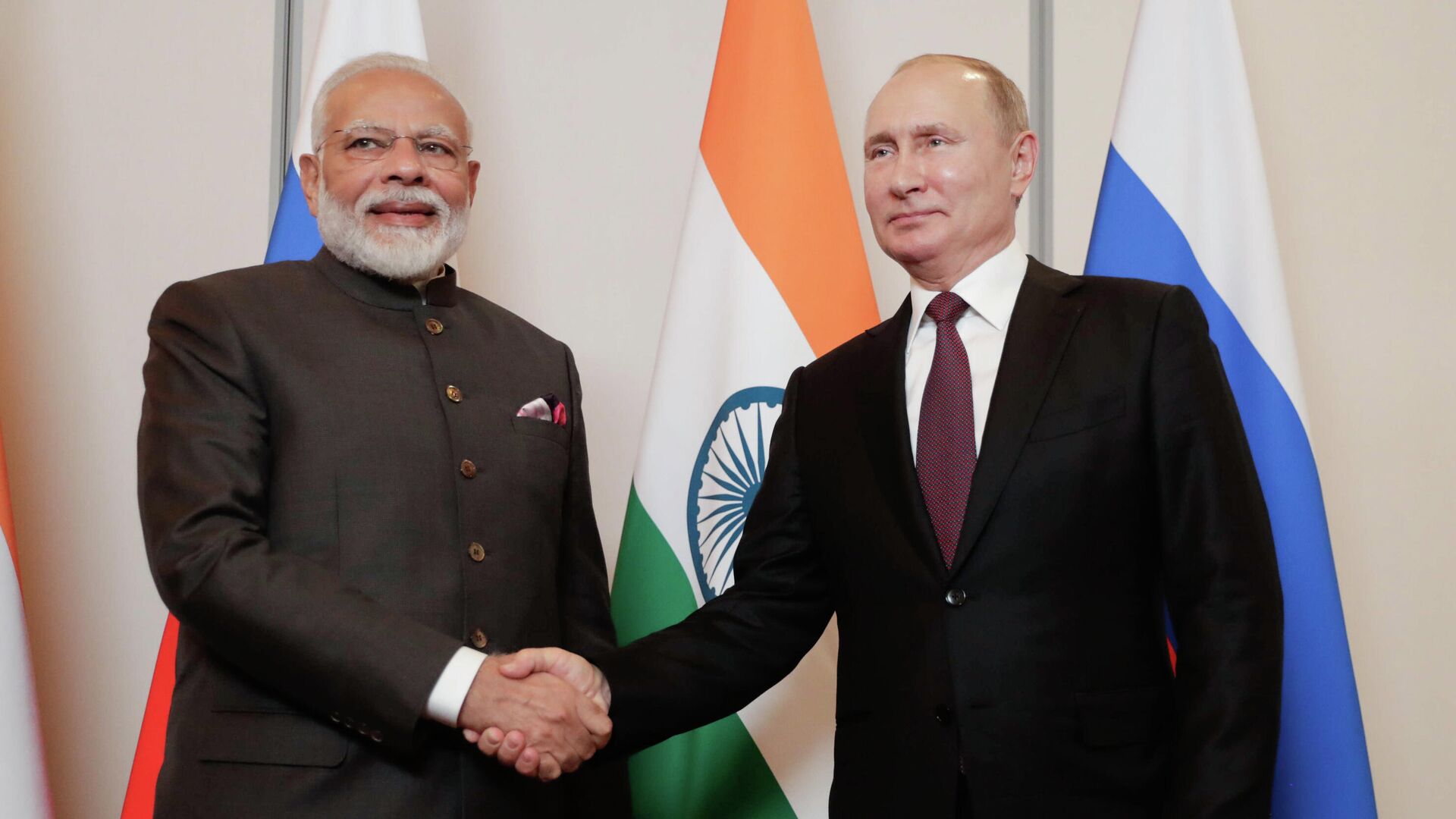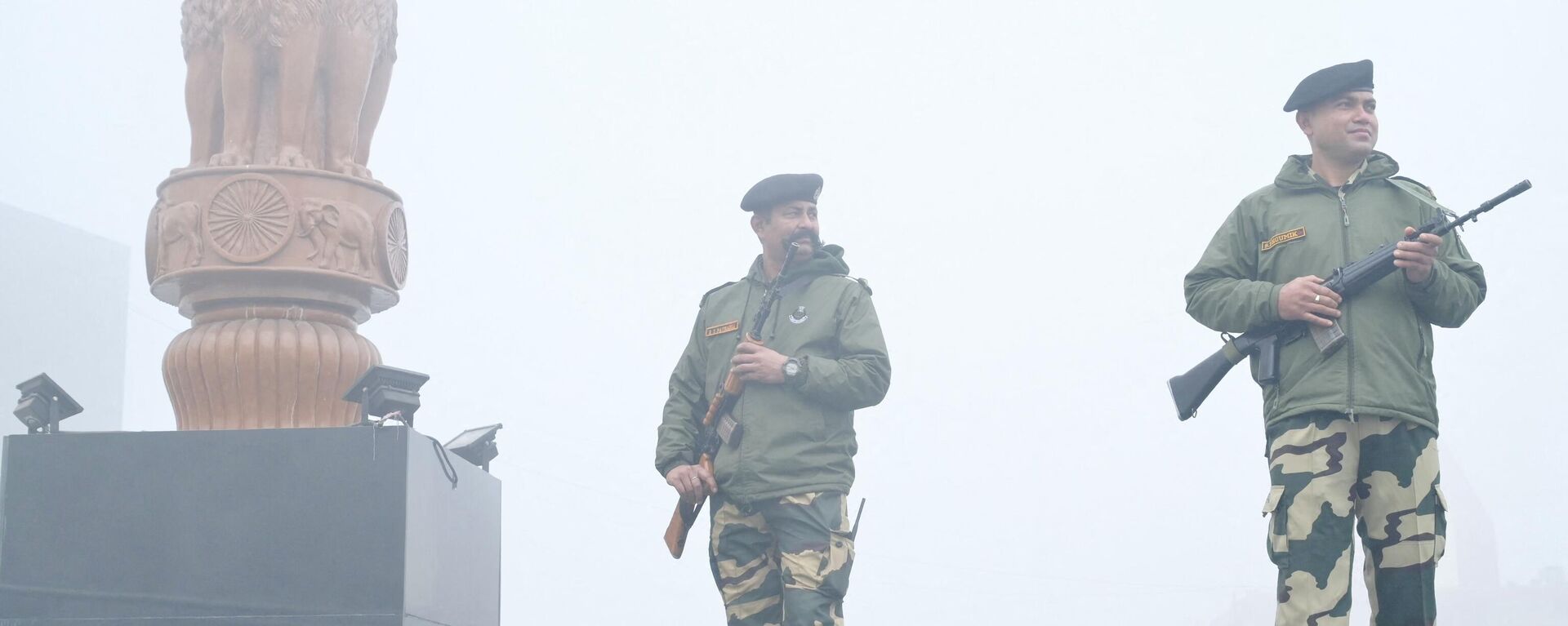https://sputniknews.in/20240502/india-russia-need-to-join-forces-to-save-asia-pacific-from-terrorism-confirms-expert-7273116.html
India, Russia Need to Join Forces to Save Asia-Pacific from Terrorism, Confirms Expert
India, Russia Need to Join Forces to Save Asia-Pacific from Terrorism, Confirms Expert
Sputnik India
On numerous occasions, Prime Minister Narendra Modi has made it clear that terrorism in any form will not be tolerated. However, despite ongoing efforts, terrorism remains a significant threat not only to India but to the world as a whole.
2024-05-02T19:26+0530
2024-05-02T19:26+0530
2024-05-02T19:27+0530
sputnik opinion
india
government of india
russia
joint indo-russian venture
cyber warfare
cyber fraud
cyber security
cutting-edge technology
terrorism
https://cdn1.img.sputniknews.in/img/07e6/0c/10/124349_0:0:2961:1665_1920x0_80_0_0_9ed948402fe09deeb7c181450d5bc15d.jpg
For many years, India has been grappling with terrorism and cross-border tensions. The situation is at risk of worsening due to the turbulence and instability in neighbouring countries.The Indian government under the leadership of Prime Minister Narendra Modi has taken several steps to curb terrorism, but it still is a major threat.Terrorism, cross border tensions, and cybersecurity threats all pose significant dangers to the Indian population. Reports of cyber fraud, breaches, and other related incidents continue to surface regularly.On Wednesday, a major cybersecurity threat was reported when approximately 100 schools received bomb threat emails. However, it later turned out to be a hoax, but thousands of parents languished in panic.How India Can Tackle Terrorism EffectivelyProfessor (Dr.) Nishakant Ojha, an expert on cyber and aerospace security as well as counter-terrorism in West Asia and the Middle East, told Sputnik India that the government is well-equipped to handle terrorism. He mentioned that the authorities have already implemented numerous measures to establish a resilient ecosystem. However, Dr. Ojha suggested that additional steps are necessary to battle terrorism more effectively.“Despite multi-disciplinary agencies like [the] NIA, Multi-Agency Centre (MAC), Combating Financing of Terrorism (CFT) cell, and other being in place, the need of the hour is to focus on comprehensive integrated border management so that the borders of the country can be protected,” Ojha stated.Stressing the necessity of reforming and revitalising the intelligence system, Ojha pointed out that modern warfare is no longer conventional, but rather a hybrid encompassing virtual war, cyber warfare, space warfare, and more. Consequently, it is imperative to carefully evaluate and upgrade the intelligence system to effectively respond to these evolving threats.India, Russia Together Can Safeguard Asian PeninsulaWhen asked about how friendly countries like Russia can help India in confronting terrorism and cross-border tensions, Ojha stated that by working together, India and Russia can effectively safeguard the Asian Peninsula.He also mentioned that while both countries are cooperating on various projects, such as the development of the BrahMos missile, Moscow could further assist New Delhi in terms of technology. Russia is considered to be more advanced in areas such as cyber warfare, hybrid warfare, and conventional warfare.Citing the rationale behind his argument, he pointed out that Russia possesses advanced technology and has consistently demonstrated a proactive approach in combatting terrorism in regions such as Afghanistan, Syria, and Yemen. Additionally, he stressed the importance of increased collaboration between the law enforcement agencies of both nations.Ecosystem Needed to Counter Cybersecurity ThreatsSharing his views about dealing with cybersecurity incidents like the aforementioned bomb threats to approximately 100 schools, Ojha said that cybersecurity is one of the areas where Prime Minister Narendra Modi is very much focussed, and it is important to have an ecosystem and mechanism.He further stated that he specifically mentioned Russia because it is important to have a reliable partner to address such a problem.“If you talk about the US, they have relations with different countries who are giving them a lot of intelligence inputs and cyber inputs. So, in order to save the Asia-Pacific region and BRICS countries, India and Russia should work closely in terms of technology and capacity,” Ojha concluded.
https://sputniknews.in/20240206/aerial-terrorism-poses-a-potent-security-threat-for-india-mps-committee-warns-6458079.html
india
russia
south asia
southeast asia
indo-pacific
Sputnik India
feedback.hindi@sputniknews.com
+74956456601
MIA „Rossiya Segodnya“
2024
Rahul Trivedi
https://cdn1.img.sputniknews.in/img/07e6/0c/13/136500_0:0:628:627_100x100_80_0_0_72097ff894c7446b70d2efafcb719720.jpg
Rahul Trivedi
https://cdn1.img.sputniknews.in/img/07e6/0c/13/136500_0:0:628:627_100x100_80_0_0_72097ff894c7446b70d2efafcb719720.jpg
News
en_IN
Sputnik India
feedback.hindi@sputniknews.com
+74956456601
MIA „Rossiya Segodnya“
Sputnik India
feedback.hindi@sputniknews.com
+74956456601
MIA „Rossiya Segodnya“
Rahul Trivedi
https://cdn1.img.sputniknews.in/img/07e6/0c/13/136500_0:0:628:627_100x100_80_0_0_72097ff894c7446b70d2efafcb719720.jpg
terrorism, cross border tension, prime minister narendra modi, cyber security, 100 schools received bomb threat email, nishakant ojha, aerospace security, nia, multi-agency centre (mac), combating financing of terrorism (cft) cell, comprehensive integrated border management, methods of border guarding, specialisation of the military to fight the cross border terrorism, asian peninsula, india-russia relationship, changing geopolitical situations, terrorism in asia-pacific region, brahmos missile, cyber-security threats, cyber-attacks, centre for excellence, incubators, asia-pacific region, brics countries
terrorism, cross border tension, prime minister narendra modi, cyber security, 100 schools received bomb threat email, nishakant ojha, aerospace security, nia, multi-agency centre (mac), combating financing of terrorism (cft) cell, comprehensive integrated border management, methods of border guarding, specialisation of the military to fight the cross border terrorism, asian peninsula, india-russia relationship, changing geopolitical situations, terrorism in asia-pacific region, brahmos missile, cyber-security threats, cyber-attacks, centre for excellence, incubators, asia-pacific region, brics countries
India, Russia Need to Join Forces to Save Asia-Pacific from Terrorism, Confirms Expert
19:26 02.05.2024 (Updated: 19:27 02.05.2024) On numerous occasions, Prime Minister Narendra Modi has made it clear that terrorism in any form will not be tolerated. However, despite ongoing efforts, terrorism remains a significant threat not only to India but to the world as a whole.
For many years, India has been grappling with terrorism and cross-border tensions. The situation is at risk of worsening due to the turbulence and instability in neighbouring countries.
The Indian government under the leadership of Prime Minister Narendra Modi has taken several steps to curb terrorism, but it still is a major threat.
Terrorism, cross border tensions, and cybersecurity threats all pose significant dangers to the Indian population. Reports of cyber fraud, breaches, and other related incidents continue to surface regularly.
On Wednesday,
a major cybersecurity threat was reported when approximately
100 schools received bomb threat emails. However, it later turned out to be a hoax, but thousands of parents languished in panic.
How India Can Tackle Terrorism Effectively
Professor (Dr.) Nishakant Ojha, an expert on cyber and aerospace security as well as counter-terrorism in West Asia and the Middle East, told Sputnik India that the government is well-equipped to handle terrorism.
He mentioned that the authorities have already implemented numerous measures to establish a resilient ecosystem. However, Dr. Ojha suggested that additional steps are necessary to battle terrorism more effectively.
“Despite multi-disciplinary agencies like [the] NIA, Multi-Agency Centre (MAC), Combating Financing of Terrorism (CFT) cell, and other being in place, the need of the hour is to focus on comprehensive integrated border management so that the borders of the country can be protected,” Ojha stated.
“When we talk about the war against terrorism, it's a low intensity conflict or a localised war and cannot be won without the support of society. Thus, integrating society in a better way is also [something] which has to be taken [into account],” the counter-terrorism expert noted.
Stressing the necessity of reforming and revitalising the intelligence system, Ojha pointed out that modern warfare is no longer conventional, but rather a hybrid encompassing virtual war, cyber warfare, space warfare, and more. Consequently, it is imperative to carefully evaluate and upgrade the intelligence system to effectively respond to these evolving threats.
India, Russia Together Can Safeguard Asian Peninsula
When asked about how friendly countries like Russia can help India in confronting terrorism and cross-border tensions, Ojha stated that by working together, India and Russia can effectively safeguard the Asian Peninsula.
“India and Russia share a historic relationship and this relationship has not been affected despite changing geopolitical situations. Therefore, if both countries come together, they can effectively tackle cross-border tensions as well as terrorism in Asia-Pacific region,” the expert noted.
He also mentioned that while both countries are cooperating on various projects, such as the development of the BrahMos missile, Moscow could further assist New Delhi in terms of technology. Russia is considered to be more advanced in areas such as cyber warfare, hybrid warfare, and conventional warfare.
I believe that Indian intelligence agencies should collaborate more closely with their Russian counterparts. It is evident that this aspect has been lacking in their longstanding relationship. This partnership is essential given the geographical proximity of Russia, which places their intelligence agencies in a stronger position to offer valuable intelligence and counterterrorism strategies to India compared to other countries, Ojha argued.
Citing the rationale behind his argument, he pointed out that Russia possesses advanced technology and has consistently demonstrated a proactive approach in combatting terrorism in regions such as Afghanistan, Syria, and Yemen.
Additionally, he stressed the importance of increased collaboration between the law enforcement agencies of both nations.
Ecosystem Needed to Counter Cybersecurity Threats
Sharing his views about dealing with cybersecurity incidents like the aforementioned bomb threats to approximately 100 schools, Ojha said that cybersecurity is one of the areas where Prime Minister Narendra Modi is very much focussed, and it is important to have an ecosystem and mechanism.
Currently, there is no foolproof solution available worldwide to protect against cyber-attacks. However, I believe that Russia ranks highly in terms of cyber capacity due to their exceptional expertise in cybersecurity. Therefore, I propose that India and Russia collaborate to establish a centre where experts from both countries can work together to develop a strong ecosystem to combat cyberattacks, suggested the cybersecurity expert.
He further stated that he specifically mentioned Russia because it is important to have a reliable partner to address such a problem.
“If you talk about the US, they have relations with different countries who are giving them a lot of intelligence inputs and cyber inputs. So, in order to save the Asia-Pacific region and BRICS countries, India and Russia should work closely in terms of technology and capacity,” Ojha concluded.



